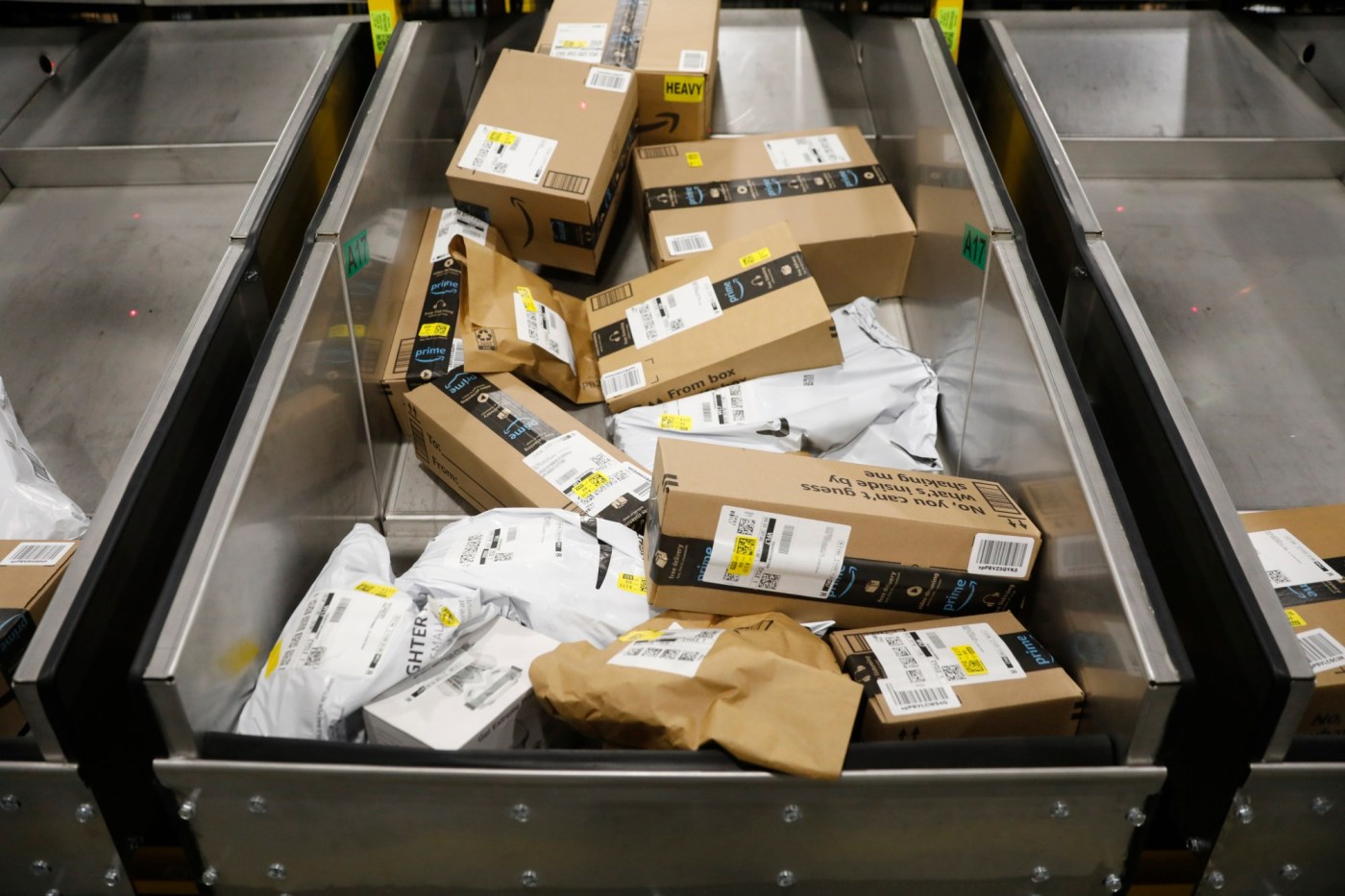
Minnesota’s new 50-cent delivery fee and other laws kicked in this July
Many new laws went into effect in Minnesota on Monday, the first day of July, including a new fee on retail deliveries that’ll raise more than $60 million a year for roads, a free college tuition program and penalties for using deep fakes to spread election misinformation.
Of all the new laws, the fee on deliveries, which backers say will help pay for road construction and has attracted criticism from retailers and other businesses, likely has the most immediate effect.
As of July 1, Minnesota charges a 50-cent fee on all retail deliveries of $100 or more. The fee applies to sales of goods subject to state sales tax, as well as clothing, though prescription drugs, food, items purchased for resale and baby products will be exempt.
Backers, opponents
Democratic-Farmer-Labor lawmakers who backed the proposal last year said it’ll help raise money for transportation infrastructure, with then-Senate Majority Leader Kari Dziedzic calling the tax a “road maintenance fee.”
Local governments supported it, too, with many counties and cities testifying in favor at hearings ahead of the fee’s final passage as it could help pay for wear and tear on roads.
But business groups and Republican balked at the proposal, with both questioning the need for a tax increase when the state had a nearly $18 billion surplus at the time. In a Monday statement, House Minority Leader Lisa Demuth called the new tax a “junk fee” part of billions in tax increases passed by DFLers last year.
At the time of the fee’s passage, the Minnesota Retailers Association called the bill a “new, complicated taxing system”
Most consumers will see the fee on transactions like Amazon delivery bills, though it also impacts businesses that deliver products to one another.
Billing it properly
On Monday, Daniel Schmidt, vice president at St. Paul-based Great River Office Products, expressed frustration with the new fee, which he says has led to accounting headaches as the software used by the business has trouble sorting through exempt and nonexempt transactions.
“It’s hitting small business in a way that has got to be told to the average consumer,“ he said. “It just makes it a nightmare for our software companies to try to figure out how they are going to put it in and bill it properly.”
Some businesses are exempt from the delivery fee. Any retailer that has less than $1 million in sales won’t have to pay.
Of the more than $60 million the state expects to raise, metropolitan counties will get 36%, small cities will get 27%, 15% will go to “larger cities,” 11% will go to town roads, 10% will go to the state highway fund and 1% will go to food delivery programs like Meals on Wheels, according to House Public Information Services.
Before the new fee passed last year, House DFL lawmakers pitched a 75-cent fee on all deliveries.
But the DFL-controlled Senate and House agreed on the lower fee and the kick-in threshold of $100 in their final version of the transportation bill, which also included a provision tying the state gas tax to inflation in the future.
In addition to the new fee, a few other laws went into effect at the beginning of the month. Among them:
Tuition
Minnesotans coming from families who make up to $80,000 a year can now get free tuition at state colleges and universities under what supporters dubbed the “North Star Promise” program. And a program that helps cover tuition for children who grew up in foster care also got a funding boost.
Deep fakes
There are already penalties for the use of artificial intelligence-generated images and audio known as “deep fakes” to spread election misinformation. But now candidates found guilty of doing so will have to give up office or party nomination.
The time frame for deep fake election manipulation violations also expanded. Now people can be found guilty of a crime for using fake videos, images or audio 90 days before a political party nominating convention, or after the absentee voting period has started before a primary election.
Non-competes
Minnesota banned non-compete agreements in the 2023 legislative session, but DFL lawmakers this year helped expand restrictions on employers interfering with employees seeking different work in the same field.
By banning “shadow non-competes”, companies can’t prevent one of their customers from hiring one of their employees.
Adoption records
Birth records of adopted people are now classified by the state as private rather than confidential, helping adopted people access original birth records.
Related Articles
Here’s what you need to know to vote in MN primaries for U.S. Senate, House as early voting begins
Other voices: Monstrous COVID-19 frauds leave taxpayers holding the bag
Letters: Gov. Walz’s response to the Feeding Our Future scandal? Feeble
Joe Soucheray: Fraud after fraud, precious millions flushed, and precious little accountability in Minnesota
Audit: ‘Inadequate oversight’ created opportunity for $250 million federal meal program fraud


